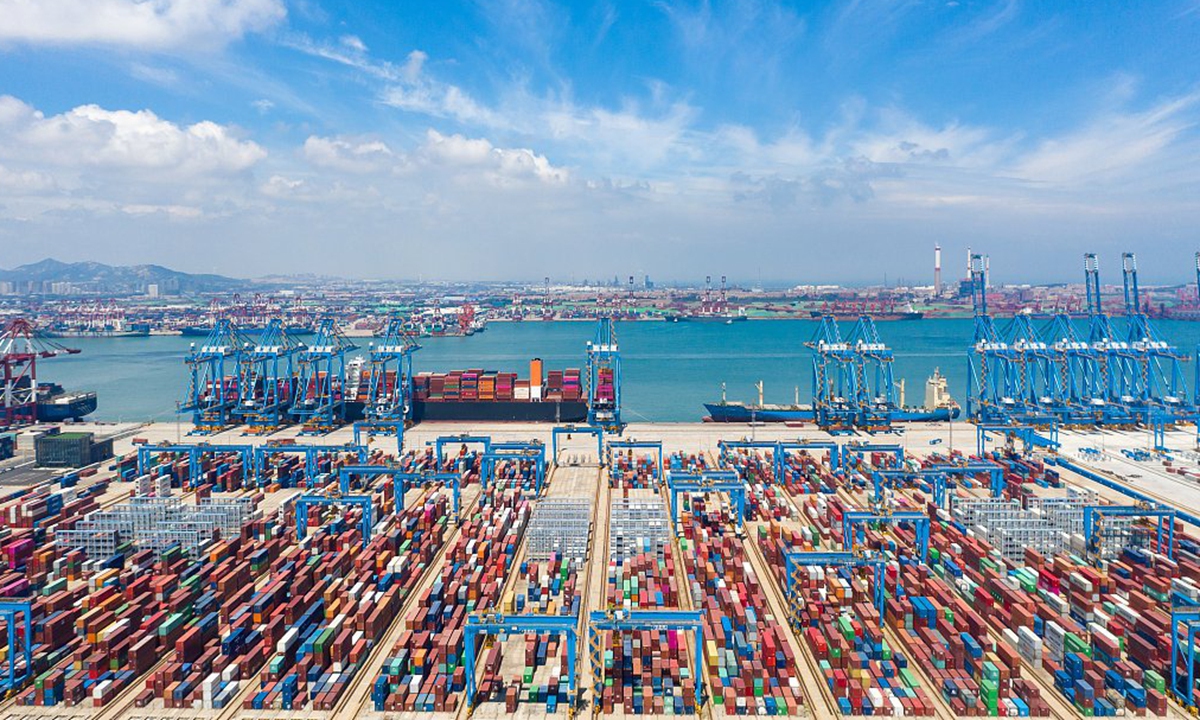
File photo
China-Germany bilateral trade grew by 0.9 percent during the first three quarters of the year, far lower than China's overall foreign trade growth rate of 8.7 percent, as some German politicians' approach of politicizing trade issues negatively impacted on economic ties with China.
Some experts urged the German side to adjust its foreign policy promptly to sustain stable trade and economic cooperation with China and avoid an economic recession amid a deepening energy crisis in Europe.
Bilateral trade between China and Germany rose slightly by 0.9 percent on a yearly basis to $173.57 billion between January and September, according to data released by the General Administration of Customs (GAC) on Monday.
Over the period, China's imports from Germany fell 6.1 percent to $84.71 billion, while exports grew 8.6 percent to reach $88.86 billion, customs data revealed.
Among major EU economies, the Netherlands saw its foreign trade with China grow by 19.9 percent year-on-year during the period, Italy was up 13.2 percent while France fell 0.1 percent, according to the GAC.
The low figures were within expectations as some German politicians have been politicizing bilateral trade and economic cooperation by intensifying hype over "reducing dependency on China" and heightening scrutiny of Chinese investments in Europe, Zhao Junjie, a research fellow at the Chinese Academy of Social Sciences' Institute of European Studies, told the Global Times on Monday.
Zhao said he would hold a wait-and-see attitude toward the prospects of China-Germany trade. "Given the current political environment in Germany and Europe, we should not be optimistic but neither should we be too pessimistic," he said.
Zhao said that he hoped for bilateral trade and economic cooperation could sustain stable growth in the coming months. He urged the German side to fine-tune its policy toward China and increase cooperation to help solve its domestic economic challenges such as rising bankruptcies of smaller firms amid an energy shortage.
Whiles some German politicians have advocated cutting dependency on China, German Chancellor Olaf Scholz said decoupling from China would be the "wrong answer," as "globalization has been a success story that enabled prosperity for many people," Reuters reported.
Chinese Foreign Ministry spokesperson Wang Wenbin said recently that China and the EU are partners, not rivals, calling for the EU to view China-EU cooperation in an objective manner and rational light, expand common interests and contribute to the stability of global supply chains.
Germany would face costs almost six times as much as Brexit if the country chose to decouple from China, according to a report by the ifo Institute, a Munich-based research organization.
The Deutsche Bundesbank, Germany's central bank, has slashed its forecast for the nation's GDP growth from 4.2 percent in December to just 1.9 percent in June, according to Xinhua News Agency.
German investment in China hit a record high in the first half of 2022, surpassing the level of tens of billions of euros, according to a report by the German Institute for Economic Research, more commonly known as DIW Berlin, which was released in August.
Although some politicians try to politicize economic issues and persuade multinationals to quite the Chinese market, many German enterprises don't want to make changes their long-standing business decisions. German corporate giants are pouring investment into the world's second largest economy.
For instance, BASF inaugurated the first plant of its Zhanjiang Verbund site on September 6 in South China's Guangdong Province. The project will be the company's largest investment to date, with a pledged investment of 10 billion euros by 2030, according to a statement sent from BASF to the Global Times.



